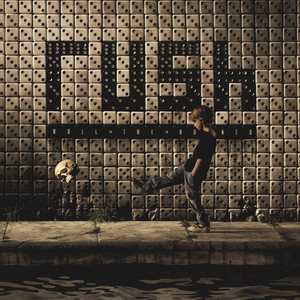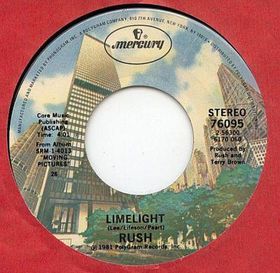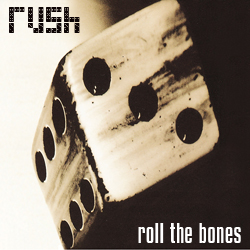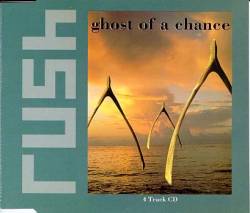
Geddy Lee Weinrib is a Canadian musician, best known as the lead vocalist, bassist, and keyboardist for the rock group Rush. Lee joined the band in September 1968 at the request of his childhood friend Alex Lifeson, replacing original bassist and frontman Jeff Jones. Lee's solo effort, My Favourite Headache, was released in 2000.

Rush was a Canadian rock band that primarily comprised Geddy Lee, Alex Lifeson (guitar) and Neil Peart. The band formed in Toronto in 1968 with Lifeson, drummer John Rutsey, and bassist and vocalist Jeff Jones, whom Lee immediately replaced. After Lee joined, the band went through several line-up changes before arriving at its classic power trio line-up with the addition of Peart in July 1974, who replaced Rutsey four months after the release of their self-titled debut album; this line-up remained intact for the remainder of the band's career.

Roll the Bones is the fourteenth studio album by Canadian rock band Rush, released September 3, 1991, on Anthem Records. The band began working on the album after a brief creative hiatus following the tour promoting their previous release, Presto (1989).

Rush in Rio is a three-disc live album by Canadian band Rush, released on October 21, 2003. The album is also available as a two DVD set. With the exception of the last two tracks on the third disc, the album was recorded at Maracanã Stadium in Rio de Janeiro on the final night of the Vapor Trails Tour. The other two tracks were taken from previous shows on the same tour. "Between Sun & Moon" was recorded at the Cricket Wireless Pavilion, Phoenix, Arizona, on September 27, 2002, and "Vital Signs" was recorded at the Colisée Pepsi, Quebec City, Quebec, on October 19, 2002.

Counterparts is the fifteenth studio album by Canadian rock band Rush, released October 19, 1993, on Anthem Records. After the band finished touring its previous album Roll the Bones (1991) in mid-1992, the members took a break before starting work on a follow-up.

Different Stages is a live album by Canadian rock band Rush, released in 1998. The bulk of the first and second discs were recorded at the World Music Theatre in Tinley Park, Illinois, during the 1997 Test for Echo tour. Five other songs from various stops along the tour were included and three songs from the 1994 Counterparts tour. The third disc is taken from a performance at the Hammersmith Odeon in London during the A Farewell to Kings tour in 1978.

"Tom Sawyer" is a song by Canadian rock band Rush, originally released on their 1981 album Moving Pictures as its opener. The band's lead singer, bassist, and keyboardist, Geddy Lee, has referred to the track as the band's "defining piece ... from the early '80s".

"Limelight" is a song by Canadian progressive rock band Rush. It first appeared on the 1981 album Moving Pictures. The song's lyrics were written by Neil Peart with music written by Geddy Lee and Alex Lifeson. "Limelight" expresses Peart's discomfort with Rush's success and the resulting attention from the public. The song paraphrases the opening lines of the "All the world's a stage" speech from William Shakespeare's play As You Like It. The band had previously used the phrase for its 1976 live album. The lyrics also refer to "the camera eye", the title of the song that follows on the Moving Pictures album.
"The Analog Kid" is a song by the Canadian progressive rock band Rush. It was released as the second single from their 1982 album Signals and reached number 19 on the Mainstream Rock chart.
"A Passage to Bangkok" is a song by Canadian rock band Rush, released in March 1976 by Anthem Records. The song appears on the band's fourth studio album 2112 (1976). With the album's title track comprising the first half of the record, "A Passage to Bangkok" opens the second side of the album.

Feedback is an EP by Canadian rock band Rush, released in 2004. The record features eight covers of songs that were influential for the band members during the 1960s. The outing marked the 30th anniversary of both the release of Rush's debut album, which featured the original lineup of Geddy Lee, Alex Lifeson and John Rutsey, and of Neil Peart's joining the band in the wake of Rutsey's departure. The tour in support of the Feedback album was called the R30: 30th Anniversary Tour. The record was remastered and reissued in 2013 as a part of the box set The Studio Albums 1989–2007. In 2016 it was reissued after being remastered by Sean Magee at Abbey Road Studios following a direct approach by Rush to remaster their entire back catalogue.
"Freewill" is the second track on the 1980 album Permanent Waves by Canadian progressive rock band Rush. The song's music was composed by Geddy Lee and Alex Lifeson, and its lyrics written by Neil Peart. In a 2016 review of Rush discography for Ultimate Classic Rock, Eduardo Rivadavia described "Freewill" as a "cerebral but remarkably radio-friendly" song. Lee has stated that the final verse of "Freewill" is at the highest part of his vocal range.

"Roll the Bones" is a song by the Canadian rock band Rush. It was released as the second single from their 1991 album of the same name.
"Test for Echo" is the title track and first single from Canadian rock band Rush's 16th studio album released in 1996. The song's lyrics were written by Neil Peart and Pye Dubois with music written by Geddy Lee and Alex Lifeson. The song reached No. 1 on the Billboard Hot Mainstream Rock Tracks chart. It was the band's fourth consecutive album to yield a chart-topper on this chart, along with "Show Don't Tell" from Presto, "Dreamline" from Roll the Bones, and "Stick It Out" from Counterparts. The song also peaked at #6 on the Canadian Singles Chart, which is the band's highest position on that chart since "New World Man" peaked at #1 in 1982.

"Stick It Out" is a song and single by the band Rush from their 1993 album Counterparts. The song debuted at number one on the Billboard Album Rock Tracks chart, becoming the band's only number one debut of their five chart-toppers. The song also reached number one on the RPM Cancon chart.

"Ghost of a Chance" is a song by the Canadian rock band Rush released as the third single from their 1991 album Roll the Bones. The single peaked at No. 2 on the U.S. Album Rocks Track chart. The lyrics focus on finding love, and as its strength over any other force.

"Marathon" is the fourth track on Canadian rock band Rush's 1985 album Power Windows.

"Lock and Key" is a song written, produced and performed by Canadian rock band Rush. It is a promotional single from their twelfth studio album, Hold Your Fire. The song deals with the theme of every human being’s primal, violent instincts underneath their civil appearance - their “killer instinct”. Critics gave the song liking reviews, with some saying it had quality of a hit single, and would make it on the Billboard Hot Mainstream Rock Tracks chart; it went on to reach number 16 on the chart. The song's music video was originally released in 1987, and was produced by Bob Jason and directed by T. Vanden Ende. The song was only played live by the band on the Hold Your Fire Tour.

"Force Ten" is a song written, produced and performed by Canadian rock band Rush, released as a promotional single from their album Hold Your Fire. It was the last song written for the album. The song has been critically positively received, and peaked at number 3 on the Billboard Mainstream Rock Tracks chart.















